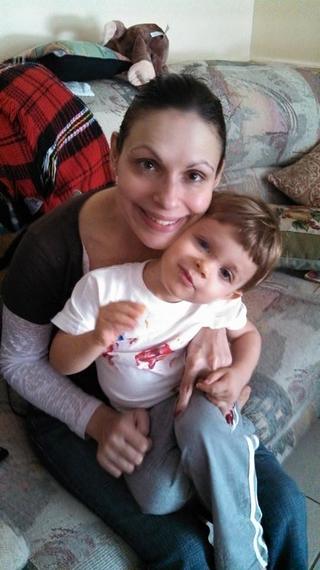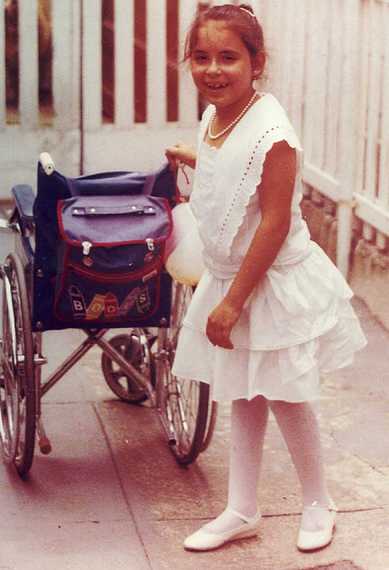Whether or not people realize it, parenting is a choice they make everyday. Whether it's thinking about what you're going to feed your toddler for breakfast, or what outfit to put on them for a play date, you're making a choice. The decision to become a parent is even a choice that's made, whether we realize it or not. Once the child is born, a lot of focus is placed on parents of children with disabilities. This is, with no doubt, a very important subject that needs to be addressed. Since there are many distinct ups and downs the parent a of child who is disabled faces, they should and do, have many resources available to help them along the way.
The question then becomes: What happens when that child becomes an adult with a disability? It seems like one of two things happens. First, there's the stereotypical idea of a person in a wheelchair not being able to contribute to society that takes hold. This person takes from society and doesn't contribute because of their inability to do so. Sometimes the complete opposite happens if you've been able to become even the slightest bit independent, and it's like your disability is supposed to magically disappear because most agencies don't know how to help you once you've become an adult.
To make things even more interesting, the words "parenting" and "disability" rarely come into anyone's realm of thought. When you're a person with a disability, you may not feel like this is even an option for you. Things like the media, our family, and even our friends try to tell us what we can do based on what they think is best. Parents or loved ones may even feel like they should distract us from things like dating with adaptive activities in the hopes that we will just forget about having a romantic relationship with someone. I'm here to say if you're a person with a disability thinking of becoming a parent or, are in a relationship with someone who has a disability and are contemplating parenthood, all is not lost.
Just like everything else, with proper planning and accurate information, you can make choices in your life that can contribute to your happiness, including becoming a parent, if that path is part of what you want for your life. Accurate information and choice are the roots of empowerment and independence. Many years ago, before giving birth to my son, I had been told that I wasn't going to be able to take care of a baby because both of my hands didn't work. I've had Cerebral Palsy since birth, walk with a cane, and only have about ten percent use of my left hand. Hearing these words, from a family member no less, I could've been discouraged in my quest to have a baby, but I wasn't. At that point in my life, I knew that comments like this weren't meant to hurt me, just protect me in the best way my family member knew how. Looking back, I'm so glad I didn't listen to that or, even other more hurtful comments that were made by others who aren't related to me.
Along with every other milestone in my life that I wasn't supposed to achieve because of my disability, I've learned and utilized resources and support systems that I was able to locate after doing some research. My disability isn't who I am, I've known that for a long time. Because of my pregnancy and birth of my son, I've been given the opportunity to open the eyes of others to this fact. While there's still plenty of room for things like sensitivity toward parents who are disabled, and more information needing to be disseminated to professionals that come into contact with parents who have a disability, I can say that I've seen some small strides being made. It's possible, with a few modifications, to be an active parent in your child's life, and not sit on the sidelines. Just because I have some physical limitations doesn't mean my son misses out on the experience of being a toddler. Despite limitations faced by those with disabilities, it's possible to reach goals we set for ourselves. The positive impact it has, not only on our lives but, on the lives of those around us is immeasurable.
One of the main pieces of advice I like to share with people about living with a disability is to create a game plan for what you'd like to do so you have an idea of how you're going to achieve your goals, whether they're in parenting, education, or any other goal you happen to set for yourself. To parents of those who are disabled, I know your job can be a difficult one at times but helping your child to become more informed on various social situations is very important to their overall well-being. The positive side to all of this is that because we live in the age of information, there are many publications available on the subject to reach those with varying abilities, unlike when I was growing up. Everyone knows there's no one sure-fire manual to parenting, and sometimes you have to go with the flow but, having options and ideas that have worked for others with disabilities along the way makes the journey of watching your child grow into an adult easier to enjoy. It's amazing to find out the array of adaptive equipment available to help you be independent with your child. It opens up a whole new world to you that you didn't even know existed in the first place. Though the road through parenthood isn't easy for anyone, it's not only possible for a person with a disability if they so choose, but it can bring them a kind of happiness and love from another person that they won't experience, or find anywhere else in the world.

